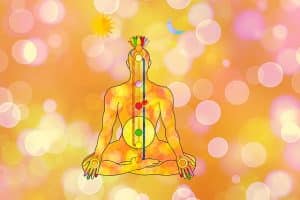
Reiki For Depression and Anxiety
In today’s fast-paced world, many people struggle with depression and anxiety. These mental health challenges can significantly impact our daily lives, relationships, and overall well-being. While traditional treatments like therapy and medication are essential, some individuals have found relief through alternative healing methods such as Reiki. Let’s explore how Reiki may help those dealing with depression and anxiety.
What is Reiki?
Reiki is a healing technique that promotes relaxation, stress reduction, and overall wellness. A Reiki practitioner uses gentle touch or hovers their hands over specific areas of the body to channel energy and promote healing.
Reiki For Depression

Depression can leave you feeling drained, hopeless, and disconnected from the world around you. Reiki healing for depression aims to restore balance and promote a sense of calm and well-being.
Here’s how it may help:
Energy balancing: Reiki practitioners believe that depression can result from blocked or stagnant energy. By channeling healing energy, they aim to clear these blockages and restore balance.
- Relaxation: Reiki sessions often induce a deep state of relaxation, which can help alleviate symptoms of depression such as fatigue and insomnia.
- Emotional release: Some people report experiencing emotional release during Reiki sessions, allowing them to process and let go of negative emotions associated with depression.
Real-life example: Meet Dinah, a 35-year-old teacher, who had been struggling with depression for years. After trying various treatments, she decided to give Reiki a chance. “After my first few sessions, I noticed a subtle shift in my mood. I felt more grounded and less overwhelmed by my emotions,” she shared.
Reiki For Anxiety
Anxiety can manifest as constant worry, racing thoughts, and physical symptoms like rapid heartbeat and shallow breathing. Reiki in anxiety management focuses on calming the mind and body. Here’s how it may be beneficial:
- Stress reduction: Reiki promotes relaxation, which can help reduce stress levels and ease anxiety symptoms.
- Mindfulness: The meditative nature of Reiki sessions can help individuals become more present and mindful, breaking the cycle of anxious thoughts.
- Improved sleep: Many people with anxiety struggle with sleep issues. Reiki may help improve sleep quality, leading to reduced anxiety levels.
Mike, a 28-year-old software developer who had tried in vein almost every other remedy, finally turned to Reiki to manage his anxiety. “I was skeptical at first, but after a few sessions with a Reiki Master, I noticed I was able to handle stressful situations at work much better. My mind felt clearer, and I wasn’t constantly on edge,” Mike explained.
The Role of a Reiki Master
A Reiki Master is a highly trained practitioner who has completed all levels of Reiki training. When seeking Reiki for depression or anxiety, it’s essential to work with an experienced Reiki Master who understands the complexities of mental health challenges.
A skilled Reiki Master can:
- Create a safe and supportive environment for healing
- Tailor sessions to address your specific needs
- Teach you self-Reiki techniques for ongoing support
- Provide guidance on integrating Reiki into your overall mental health care plan
Integrating Reiki with Traditional Treatments
It’s important to note that Reiki should not replace professional medical advice or treatment for depression and anxiety. Instead, it can be a complementary approach to enhance your overall well-being. Many people find that combining Reiki with traditional treatments like therapy and medication provides a holistic approach to managing their mental health.
Conclusion: Heal Depression and Anxiety with Reiki
While Reiki is not a cure-all for depression and anxiety, many individuals have found it to be a valuable tool in their mental health journey. By promoting relaxation, balance, and emotional release, Reiki may offer a gentle and nurturing approach to managing symptoms of depression and anxiety.
If you’re curious about trying Reiki for depression or anxiety, consider reaching out to a certified Reiki Master in your area. Remember to keep an open mind and be patient with the process. Healing takes time, and everyone’s experience with Reiki is unique.
Have you tried Reiki for depression or anxiety? We’d love to hear about your experiences in the comments below!


